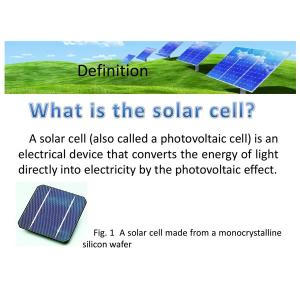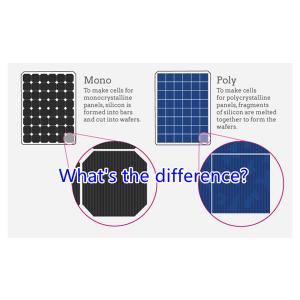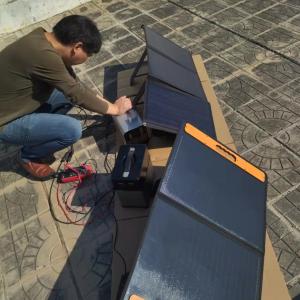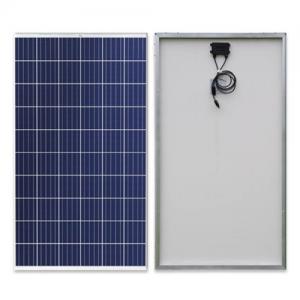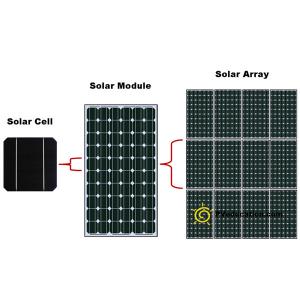Solar energy advantages and disadvantages
Should I install solar panels?
You should install solar panels if you're looking for a way to save on energy expenses in the long run. While upfront installation costs can be high, the cost-benefit is clear: installing solar panels on your home is financially and environmentally responsible. Using solar power will lower your electricity bills and earn tax incentives. Solar panels are also very good investments because they add value to your house and are exempt from property taxes.
Solar energy advantages and disadvantages
Benefits of solar panels
There are many advantages of solar energy to consider when you're deciding whether or not to install solar panels, such as:
Reduced electricity bills
Using solar energy instead of traditional energy sources can result in financial savings. Over a 20-year period, you could save anywhere from $10,000 to $30,000, depending on your state, home size and electricity usage. Unlike paying utility bills, paying off a solar panel system gets a return on investment. Solar energy can also be sold back to the grid, so you have the potential to earn while you save.Financial support from the government
Federal and state tax benefits are available when you install solar panels in your home or business. Taxpayers could potentially claim 30 percent of installation costs, with benefits that vary by state. The solar energy industry also creates jobs for solar panel manufacturers and solar installers, which in turn helps the economyEnergy independence
The sun is an infinite source of energy, unlike coal and natural gas, and solar panels can be installed practically anywhere. Using solar panels allows you to reduce dependence on foreign oil and fossil fuels, leading to a more stable and predictable energy bill, especially during times when the demand for energy is high.Reduce your carbon footprint
Solar energy is able to generate power without giving off any dangerous emissions. While there is some carbon footprint from producing and distributing solar panel infrastructure, the energy produced from solar panels is clean, free of pollutants and emits no greenhouses gases. The average American home produces 14,920 pounds of carbon dioxide each year. By installing solar panels, you can reduce your carbon footprint by more than 3,000 pounds annually.Requires little maintenance and has longevity
Most systems last for 20 or more years. During that time, solar panels and equipment require little maintenance. The company you choose can help you understand what is exactly required for maintenance. Plus, solar energy technology is always improving, so the same size solar panels from last year are even better today.Disadvantages of solar panels
As with most things where there are advantages, there are also disadvantages to consider when thinking about installing a solar energy system. Some disadvantages associated with solar energy systems include:
High initial cost
While a reduced electric bill is an advantage, there are initial costs for the equipment, panels and installation that could be more than $20,000. Also, if you have devices that run on DC currents, those will be more expensive to power directly.
Weather dependence
The most important item with solar panels is the sun. If you live in an area prone to cloudy days or are simply having some storms and darker days for an extended period, this will negatively impact how the system runs. Your system will likely be less productive in winter months than summer months.
Inability to take it with you when you move
Practically speaking, once a solar energy system is installed on a home or business, it is nearly impossible to transport. Theoretically, it is possible to transfer PV solar panels if you move into a new home, but it is never advised. The system would have to be dismantled from your roof and retrofitted to your new property, which would likely cause extensive damage to both your panels and your roof.
Limitations from your surroundings
As the solar energy industry continues to grow and offer more nation-wide services, most solar energy companies service a particular geographic region or even just one state. So, if you live in an area outside of a solar energy company’s coverage area, you could have difficulty even finding solar options near you. Additionally, if you live in a rural area or just far away from your solar provider, you could have problems reaching customer services representatives when you need to.
Inconvenience in inner cities and other areas with limited space
A solar system requires a decent size of space to install the equipment and have everything run smoothly, and so solar panels might be inconvenient in inner cities and other areas with limited space. About 100 square feet of roof space is required for every 1 kW of conventional solar panels. If you have limited space or a small roof, you might not have the space for all the solar panels needed to power your entire house.Bottom line
Many of the advantages and disadvantages of installing solar panels seem to present a tradeoff. Solar panel technology is constantly improving, which means it’s not perfect yet. You’ll get a return on your investment, but it takes a long time. Energy produced from solar panels is abundant, clean and renewable, but the infrastructure that manufactures and delivers them leaves its own a carbon footprint.
Pros
- Reduced electricity bills
- Financial support from the government
- Energy independence
- Reduce your carbon footprint
- Requires little maintenance and has longevity
Cons
- High initial cost
- Weather dependence
- Inability to take it with you when you move
- Limitations from your surroundings
- Inconvenience in inner cities and other areas with limited space
After you understand how solar panels work and what makes the best solar panels, you will need to talk to a solar energy company to find out what makes the most sense for your home and climate. Depending on where you live, you could qualify for government subsidies and tax incentives that could help offset the initial high cost of installing a solar energy system.
https://www.consumeraffairs.com/solar-energy/solar-energy-pros-and-cons.html
*Brought to you by Xiamen Lynsa Intelligent Technology Co., Ltd.


